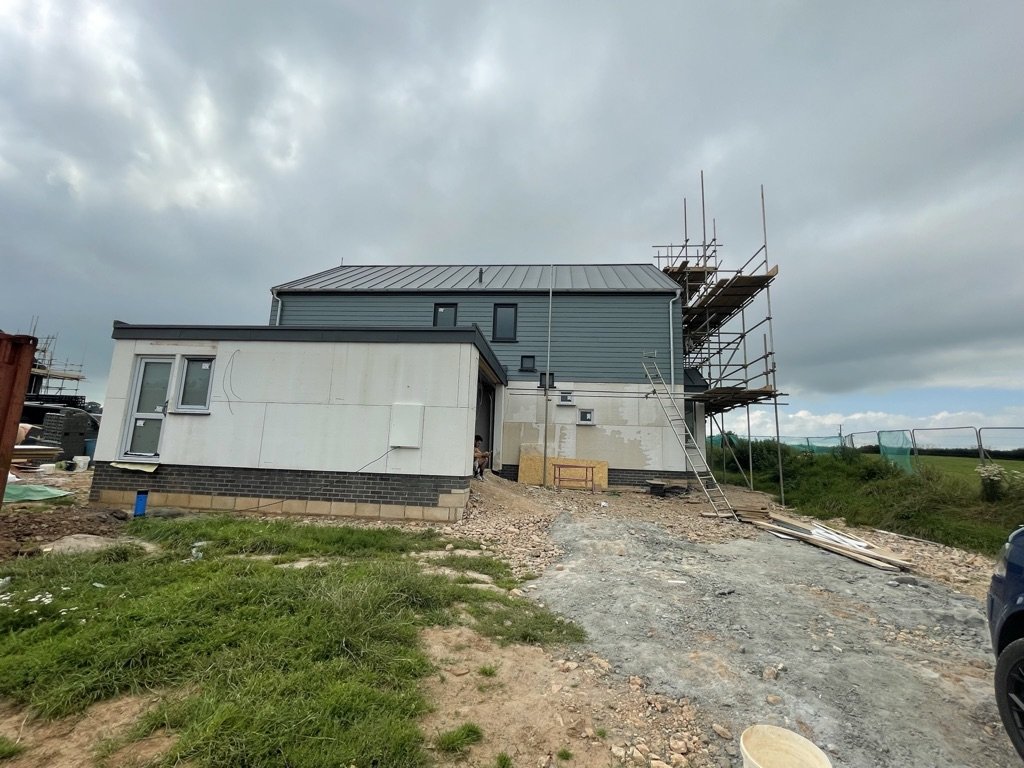August 2023
This is a Class Q. In fact it’s one of four on this site.
How do I get a barn that looks like this…read on.
In 2014, a permitted development right known as Class Q was introduced to planning policy in England to allow for residential conversion of agricultural buildings via ‘prior approval’.
Prior approval is a planning application to establish you don’t need a planning application. It’s a shortened or abridged version.
Class Q is a way to convert redundant agricultural buildings to houses.
The class Q rules aren’t very clear, and each planning authority has their own interpretation of them. There are now various legal cases that have challenges these varying interpretations.
The policy is restrictive, if it wasn’t every barn would be converted to a house in no time at all.
This can sometimes give rise to ill-conceived conversions, that whilst permissible can be of little architectural merit - especially considering many prior approval Class Q applications do not involve the rigorous design process associated with a typical full planning application.
In short, there are both good Class Q conversions, and bad. With our experience as a practice, we can advise on where the potential lies, and how to best embrace the agricultural qualities of the building.
The policy was overhauled in 2018, and currently, the key things to be aware of are:
· The site must have been used for agricultural purposes on the 20th March 2013 (or it can be proven it was in use before that date, but not used since).
· If built or brought into use on/after 20 March 2013, it needs to have been in agricultural use for 10 years.
· Your are allowed up to 3 larger dwellings (>100 sqm, but the cumulative total cannot exceed 465 sqm), or up to 5 smaller dwellings (<100 sqm). The maximum total of dwellings permitted is 5. The hypothetical maximum floor space (including new mezzanine floors) is 865 sqm (1 large dwelling + 4 small dwellings).
· An agricultural tenancy of the site cannot have been terminated within 1 year of the prior approval application, and for the purpose of Class Q, unless there is prior agreement between landlord and tenant that the site is no longer required for agricultural use.
· The building(s) cannot be extended in any way, though an independent first floor mezzanine may be constructed.
· The building must be structurally suitable for conversion without new or reinforcing structure.
· Partial demolition may be permitted.
· Works to install or replace windows, doors, roofs, or exterior walls, or water, drainage, electricity, gas or other services are permitted to allow for the building to function as a house(s)
· Class Q does not apply on article 2(3) land. National Parks, ANOB, Conservation areas and other designated parcels of land, like a world heritage site or historic parkland area.
· Additional to the above points which constitute policy Q1, the prior approval also requires consideration of Q2 relating to transport and highways impacts of the development, noise impacts of the development, contamination risks on the site, flooding risks on the site, whether the location or siting of the building makes it otherwise impractical or undesirable and the design or external appearance of the building.
The interpretation of the rules and the statue by local planning authority can vary, with regards to the distinction between ‘conversion’ and ‘rebuilding’. It is important to design the scheme in such a way that the existing structure and external envelope does not need to be substantively rebuilt and is capable of fulfilling use a dwelling with only alterations to the building elements mentioned in the list above. Internal works are not typically considered as ‘development’ and are therefore less restricted. So, whilst it is entirely practical, it is challenging to achieve a design that is of significant architectural merit, particularly with regards to the external appearance.
We can help you with this.
For those with a qualifying Class Q building but realising an ugly pig fattening unit will still be an ugly Pig fattening unit when converted…..the case of Mansell v Tonbridge And Malling Borough Council [2017], paves the way for ‘betterment’. This is a ‘fall back’ argument. A decent house or houses are better than a poor conversion with zero architectural merit.
The image at the top of the page is a one of four houses under Class Q ‘betterment consent’.
If you need advice help and are looking for an architect for a Class Q barn conversion get in touch.



